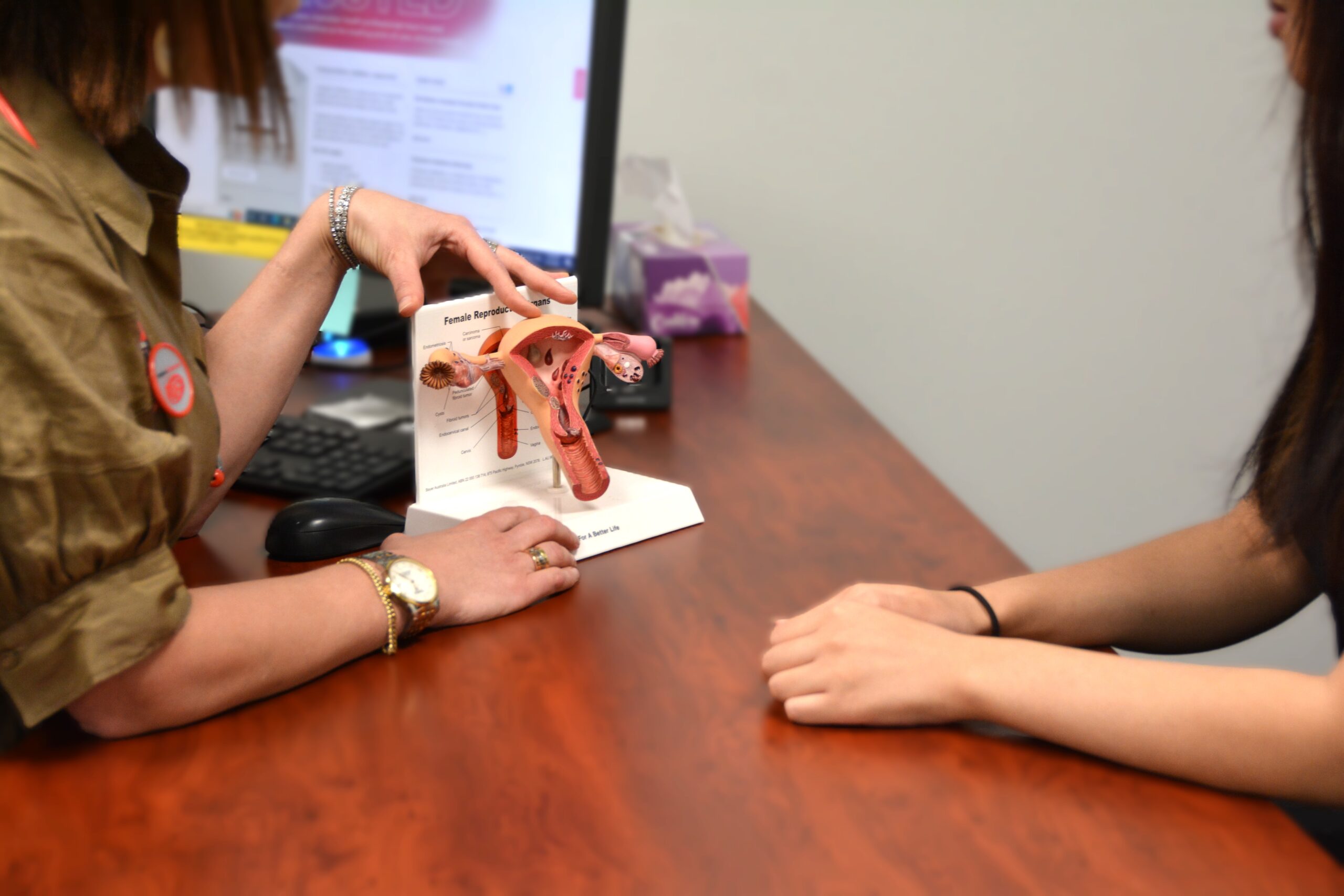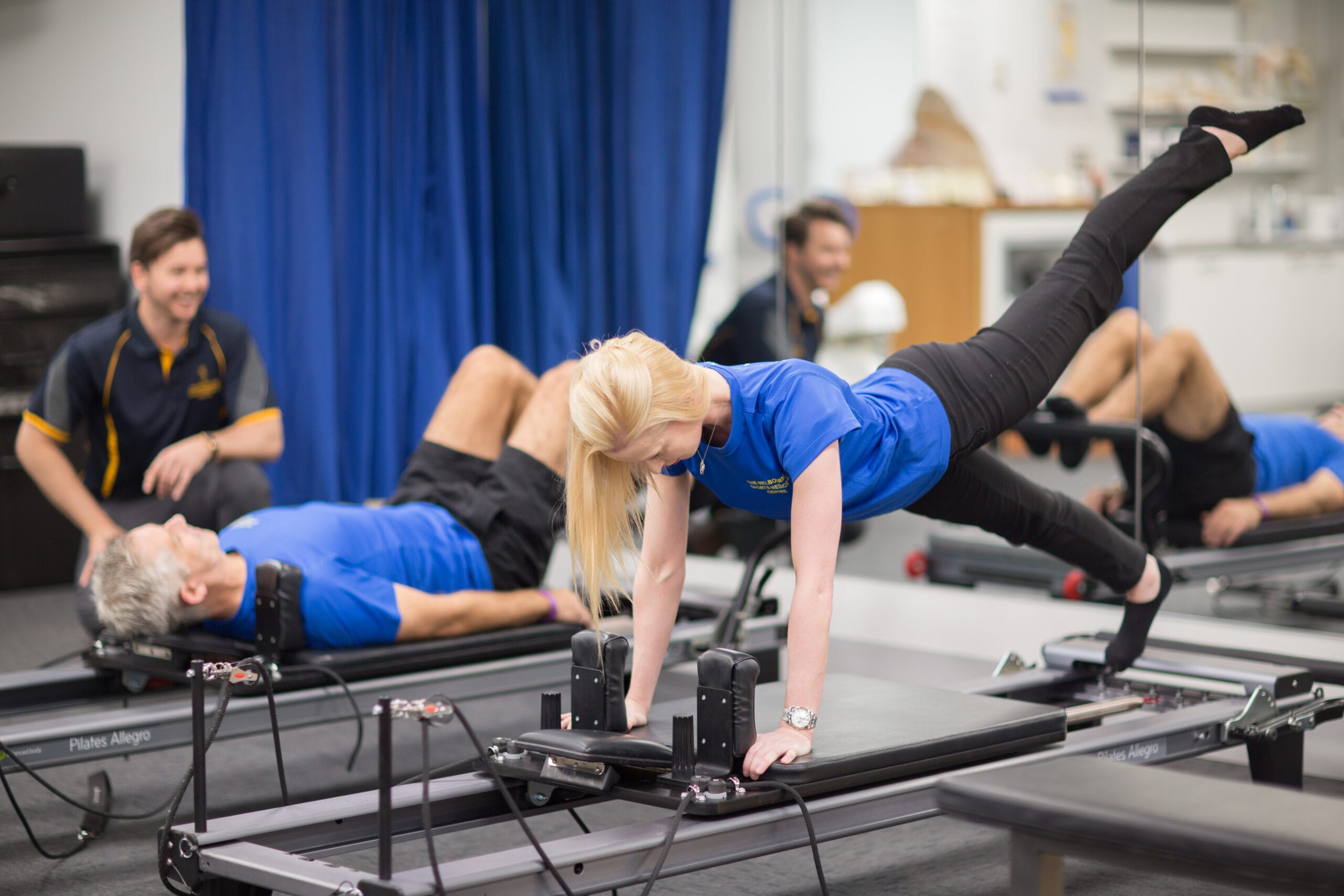Pelvic Floor

Pelvic Floor Physiotherapy
You can find pelvic floor services at Healthcare on Collins. These services cover everything pelvic such as:
- Incontinence, toileting accidents, bladder and bowels
- Sexual dysfunction, such as difficulty with penetration for vagina owners or erection issues
- Pain and dysfunction in the pelvic area
While the pelvic floor is a major focus, its interaction with pelvic organs and the surrounding muscles that connect to the area are also examined. In essence, the focus is on the muscular aspect of the pelvic region.
Appropriate Patients
Patients aged 2+ through to all ages can be seen. Pelvic floor health encompasses a broad spectrum of pelvic floor conditions.
Paediatric patients may experience symptoms like bedwetting or issues with fecal incontinence, which can be socially awkward for them, often in kindergarten or transitioning to primary school.
Female patients dealing with menstrual difficulties such as painful or heavy periods can access help, as well as getting support during pre and postpartum stages. Services extend to pregnant women and those who have undergone a prostatectomy among males.

Physiotherapy Assessment of the Pelvic Floor
Medical History
During the initial consultation, various aspects are considered, about an hour on comprehensive questioning is needed.
What is covered:
- Bladder health
- Bowel habits
- Sexual function
- Pain
- For individuals identifying as female, enquiry about obstetric and gynecological history
- Discussion about any surgeries related to the pelvis and inquiry about other medical or physio conditions, such as foot, ankle, knee, hip, or back problems.
Physical Assessment
The assessment may involve real-time ultrasound, examining the pelvic floor through the abdomen or transperineal region (between the anus and vagina or anus and testes).
An internal or external pelvic exam, with clear communication and consent throughout, offers a detailed understanding of muscle functionality.
This may include examining posture, hip movement, and the interplay between the diaphragm and pelvic floor, assessing breathing patterns.
The goal is to obtain a comprehensive picture of muscle function and pelvic health.
How do Physiotherapists Help with Pelvic Floor Symptoms?
Physiotherapists help people manage and improve symptoms related to the following and more:
Pregnancy
Coccyx & Perianal Pain
Support Through Menopause
Pain During Sex
Pain during sex, or dyspareunia, can have psychological and physical factors. It may result from initial discomfort causing muscle tension, or it could be associated with conditions like endometriosis, especially in females.
The patient’s menstrual history screening guides the assessment, and patients may be referred to their primary care physician for conditions like endometriosis.
The pelvic health physiotherapist’s interventions include muscle relaxation techniques, calming the nervous system, and potential collaboration with psychologists or sexologists.
Pelvic Organ Prolapse
Is common following vaginal delivery, especially when instrumentation (i.e. forceps) is involved.
Patients may complain of vaginal heaviness, deep pain during sex, difficulties with bowel movements or bladder incontinence.
Pelvic health physiotherapists are trained in advanced urogynecology, so they can consider the prescription of a pessary.
Erectile Dysfunction
Post-Prostatectomy
Book Pelvic Floor Services at Healthcare on Collins
The ideal outcome of pelvic floor Physiotherapy is to reach your goals and support you in working with other medical specialists.
- Your privacy and consent during the session is of utmost importance
- The clinicians provide valuable education as they believe in the empowerment that comes with knowledge
- There are caring Women’s Health General Practitioners available
- Your Physio has completed pelvic-floor-specific professional development, you are in good hands!
To arrange an appointment with a warm Physiotherapist, please phone us or make a booking below.
Call Us
(03) 9650 4284

